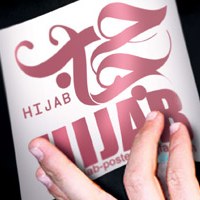![]()
Sun, Jan 16, 2011 | The Meir Amit Intelligence and Terrorism Information Center
Concerns in Iran over South Sudan Referendum
This week, Iran’s conservative press expressed dissatisfaction with and concern over the referendum held in Sudan, in which the African residents of southern Sudan will decide if they want to be fully independent from the country’s Arabic/Islamic-oriented north.
The conservative daily Keyhan defined the referendum as a new Western plot in Africa designed to split Sudan in two. According to the daily, the U.S., Israel, and the West have always had their eyes on southern Sudan, a region endowed with 85 percent of the country’s oil and natural sources and a critically important source of water for Egypt, Sudan, and nine other African countries. The referendum may now turn the Western countries’ plots into reality.
The daily reported warnings issued by senior officials from northern Sudan about the possible implications of the referendum on regional stability, as well as the remarks made by southern Sudanese leaders on their intentions to establish diplomatic relations with Israel after becoming independent. The daily claimed that Israel intended to build dams on the rivers of southern Sudan to gain control over 11 countries in northern and eastern Africa to fulfill the vision of Greater Israel.
Keyhan warned that southern Sudan could become a stronghold for the U.S. and the Zionists, that a “second Israel” could be established in Africa, and that, following the Sudanese precedent, other African countries could be split in a way that would serve Israel’s interests (Keyhan, January 9).
The daily Jomhuri-ye Eslami also called the referendum an imperialist plot concocted by the West to split Sudan. An editorial published by the daily earlier this week says that the effects of the dangerous plots against Sudan will not be limited to that country alone. The daily criticized Sudan’s President Omar al-Bashir’s agreement to hold the referendum, claiming he had succumbed to pressure exerted by the West to pull his country out of political isolation. According to the daily, Al-Bashir was willing to sell a part of his country to retain control over the remainder of Sudan’s territory.
The daily argued that Zionist circles are interested in establishing a “second Israel” in that sensitive part of Africa, and therefore took an integral part in the plan to split the country in two. The autonomous administration in southern Sudan already has extensive ties with the “Zionist regime”, and many of the region’s hotels and trade centers have been purchased by Zionist companies. Unofficially, the leaders of southern Sudan have been purchasing considerable quantities of weapons from Israel. The Zionist lobby in the U.S. also played an active role in the implementation of the plan to divide Sudan.
According to Jomhuri-ye Eslami, the division of Sudan is an act of aggression against Muslim countries and the interests of the Muslim world. It is the silence of Muslim countries over the developments in Sudan that facilitated the activity of Zionist-related anti-Islamic circles. If the silence continues, the Zionist schemes will expand to many other Muslim countries (Jomhuri-ye Eslami, January 9).
The conservative daily Siyasat-e Rooz also addressed the Sudan referendum, claiming it was part of a project implemented by the West in recent years to tighten its hold over the world under the pretext of promoting democracy and liberty. The first phase in the implementation of the project is the occupation of Afghanistan, the second is the occupation of Iraq, then followed by attacks on Pakistan, Somalia, and Yemen.
The organizers of the referendum want to divide Sudan. It will not be the last country to fall victim to the Western plot, making the unity of the Muslim world absolutely essential (Siyasat-e Rooz, January 11).



 RSS
RSS











Concerns in #Iran over South #Sudan #Referendum | the Crethi & the Plethi | http://j.mp/h76j0z
Concerns in #Iran over South #Sudan #Referendum | the Crethi & the Plethi | http://j.mp/h76j0z http://ff.im/wA8Xk
Concerns in #Iran over South #Sudan #Referendum | the Crethi & the Plethi | http://j.mp/h76j0z
RT @CrethiPlethi: Concerns in #Iran over South #Sudan #Referendum | the Crethi & the Plethi | http://j.mp/h76j0z
RT @CrethiPlethi: Concerns in #Iran over South #Sudan #Referendum | the Crethi & the Plethi | http://j.mp/h76j0z http://ff.im/wA8Xk